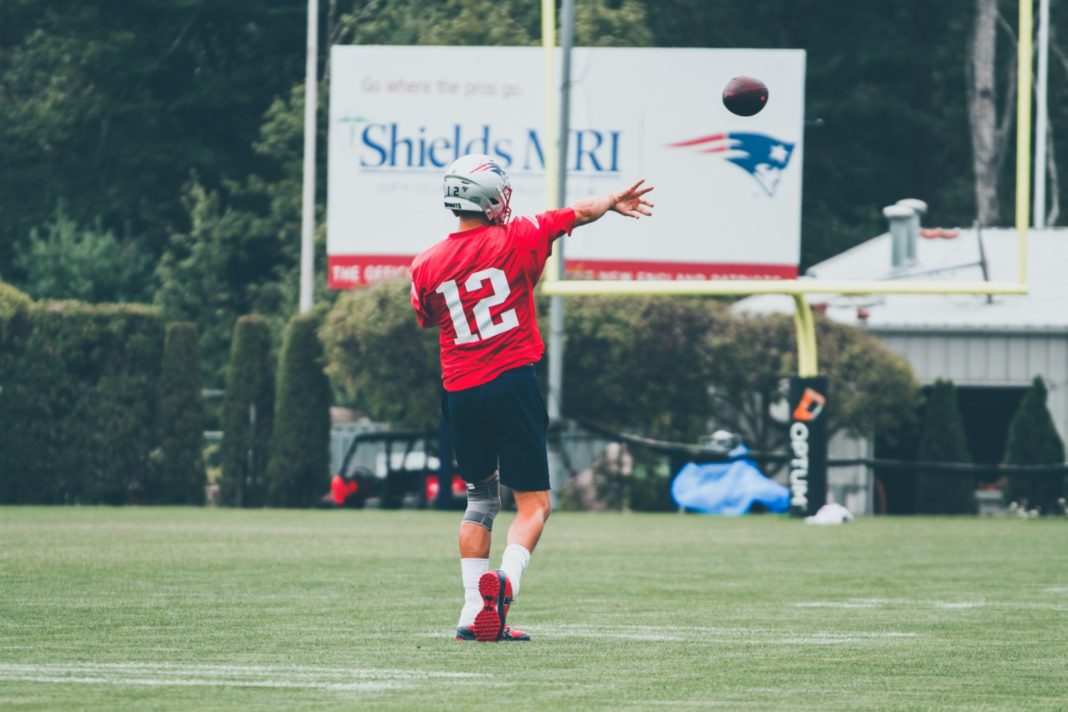Watch any NFL press conference, and you’ll find a mix-and-match of the same 20 or so phrases. “Give them credit.” “Proud of our team today.” “We know what we have in this locker room.”
There’s a reason so many of these mantras are repeated ad nauseum. And we may be sick of them, but take a second to think and you just might come to a realization: a few – not all, but a few – are beaten into the brains of players and coaches alike because they are unequivocally important in football and in life.
I grew up in Rhode Island, so I’m a fan of the New England Patriots. Sue me. While Bill Belichick and Tom Brady might give the most boring press conferences of all time, to this day I watch every single one of them. Over the years, I’ve picked up a thing or two as I learned to apply the most crucial principles in my own life. With Super Bowl LVI around the corner and Brady’s retirement in the not-so-distant rearview mirror, I figured it was a perfect time to fire up the old keyboard and put a few years of thoughts on paper. These slogans aren’t unique to the Patriots, and I’m by no means perfect in following them. But here’s what I’ve learned:
I learned to “Do Your Job.” This might be the most famous Patriot mantra, and there is absolute truth to focusing on our own responsibilities in a collaborative effort. The moment we attempt to “do too much” and overstep to compensate for the work of others, we risk failing to deliver the best product in our own areas of expertise. Instead, when we focus on our own jobs and fundamental duties in our personal and professional lives, we may just end up producing our best work.
I learned to speak for myself. Throughout most press conferences, we see players asked about the thoughts of their teammates and coaches. And in most cases, reporters are met with one reply: “You’d have to ask them about that.” I’m not exaggerating when I say that 95% of the worst rifts and misunderstandings throughout my life have come when one person attempts to express the thoughts, feelings and motivations of another, instead of letting that person be addressed directly. And I’m guessing I’m not alone. This world would be well served if we all expected people to sit down, have conversations and speak for themselves.
I learned that in any journey, the key is to be a little better than you were the day before. Whether this applies to learning a new skill, recovering from an injury, or quitting a habit or addiction, consistent incremental improvement is vital to any mastery or life change. Too often we see leaps and bounds followed by a crash. Insane weight loss is followed by immediate gains. Roaring romantic flames are ashes within weeks. Burnout follows a complete obsession with a new job. Focusing on making one small improvement each day can build habit-forming determination.
I learned to “ignore the noise.” As Henry Rollins once said in “Iron and the Soul,” his love letter to weight lifting, “You can walk outside and listen to all kinds of talk, get told that you’re a god or a total bastard … but 200 pounds is 200 pounds.” While most of us aren’t hounded by dozens of national opinions from talking heads the way NFL players are, sometimes it seems that nothing is off limits when it comes to the peanut gallery in our personal lives. And while accepting constructive criticism and listening to the guidance of those we trust will always have merit, the rest of the time, we have to ignore the noise, choosing instead to focus on our own 200 pounds.
I learned that work ethic and determination can take you just as far, if not farther, than talent and natural ability. I graduated high school as a valedictorian, and I was in no way the smartest kid in my class. Rather, I was willing to outwork everyone else. Not because I wanted a title, but because in my world, if you didn’t put 100% into something, you might as well not do it. Some of my favorite players in the NFL reflect this belief: the Tom Bradys, Julian Edelmans and J.C. Jacksons of the world who either went undrafted or narrowly skated into the late rounds because of a perceived lack of talent or physical gifts. And while life in the world outside of sports isn’t about 40-yard dash times or vertical jumps, we all have the same ability to overcome limiting circumstances with desire and drive.
I learned to control what I can control. It’s human nature to yearn for some degree of understanding of, and influence in, the thoughts and actions of others, from government officials and co-workers to our friends, family and significant others. But the more energy we put into attempting to control things outside of ourselves, the more we risk wasting that energy in an endless dissatisfying loop. Just like a player who controls his attitude and effort in practice, but not a coach’s decision to cut or sign him, we can only control the way we show up in our lives, careers and relationships. We control the way we treat others, the values we choose to uphold, and the work and commitment we put into what we care about in our lives. The rest we must let go of. At the end of the day, I know it will always be infinitely easier to accept what life has in store for me if I know I have done everything I possibly can to put myself in a position to be happy.
Oh, and there’s one final lesson I’ve learned from Thomas Edward Patrick Brady: if you ever need to get fired up for anything, screaming “LET’S GO!” at the top of your lungs is a great place to start.
























